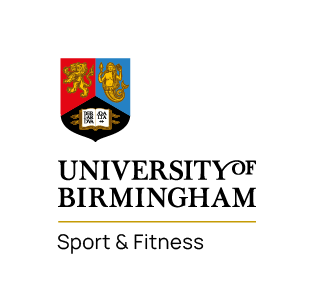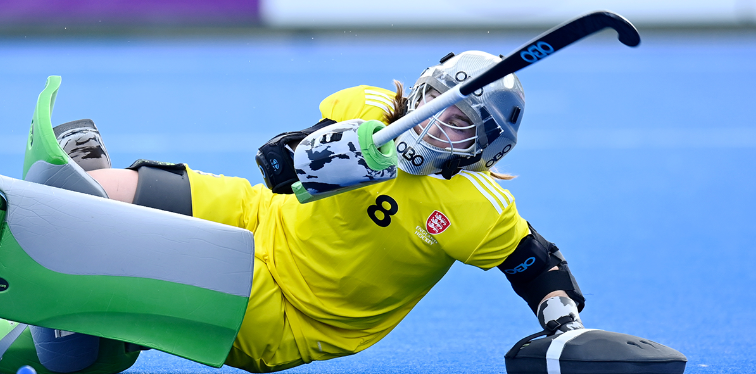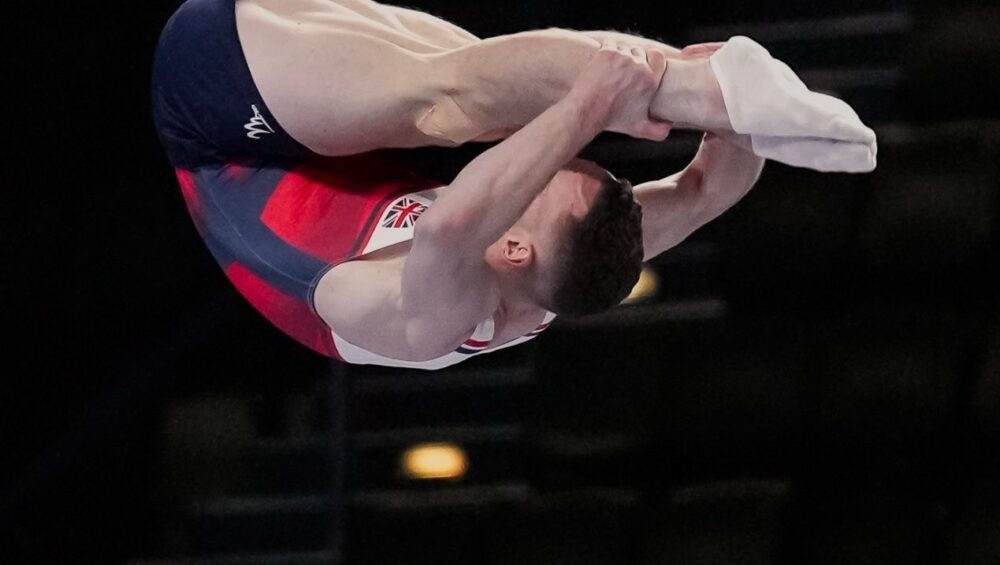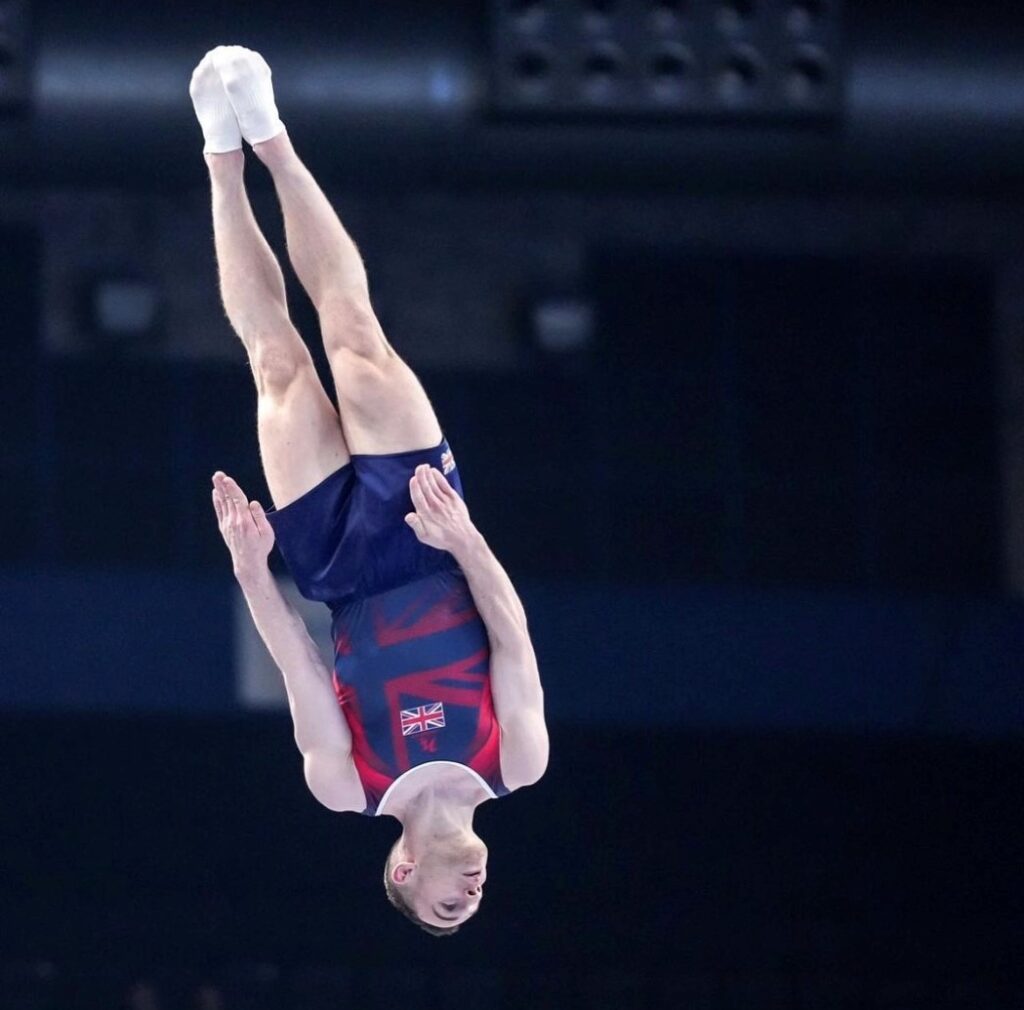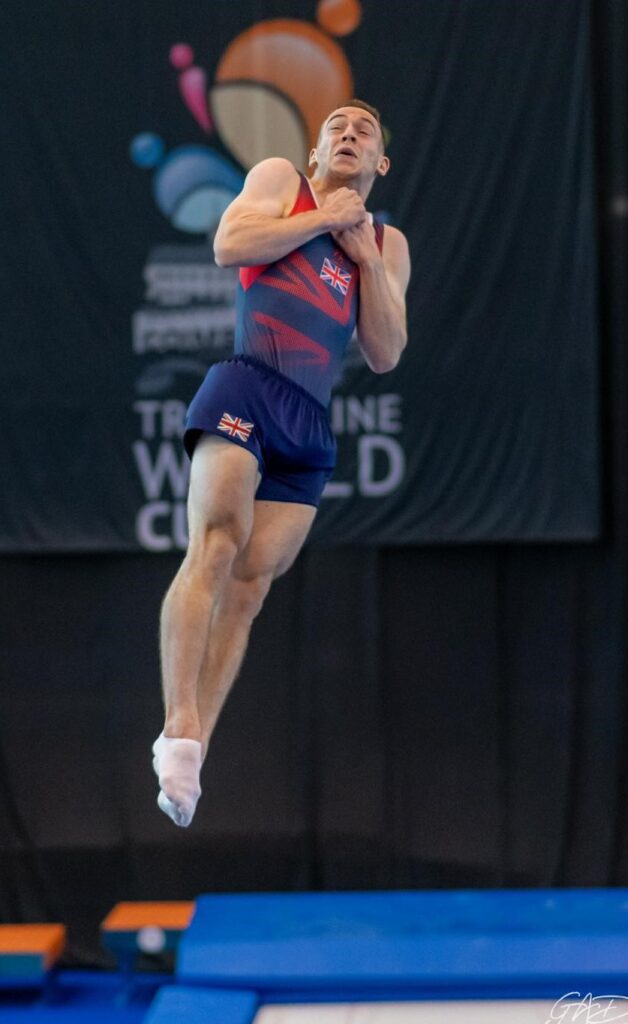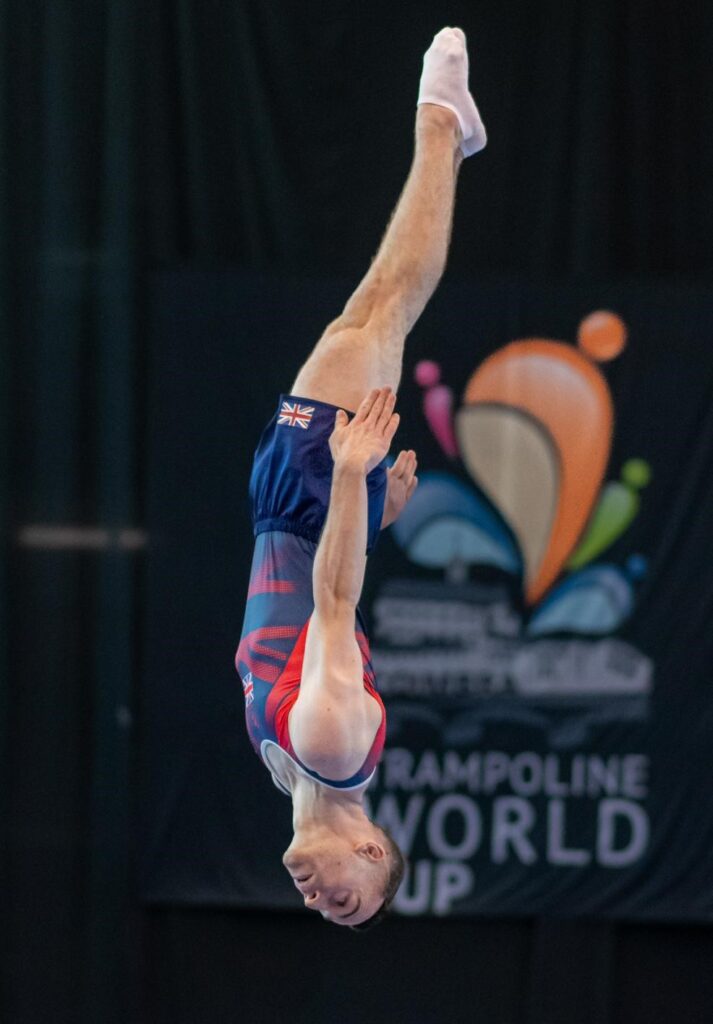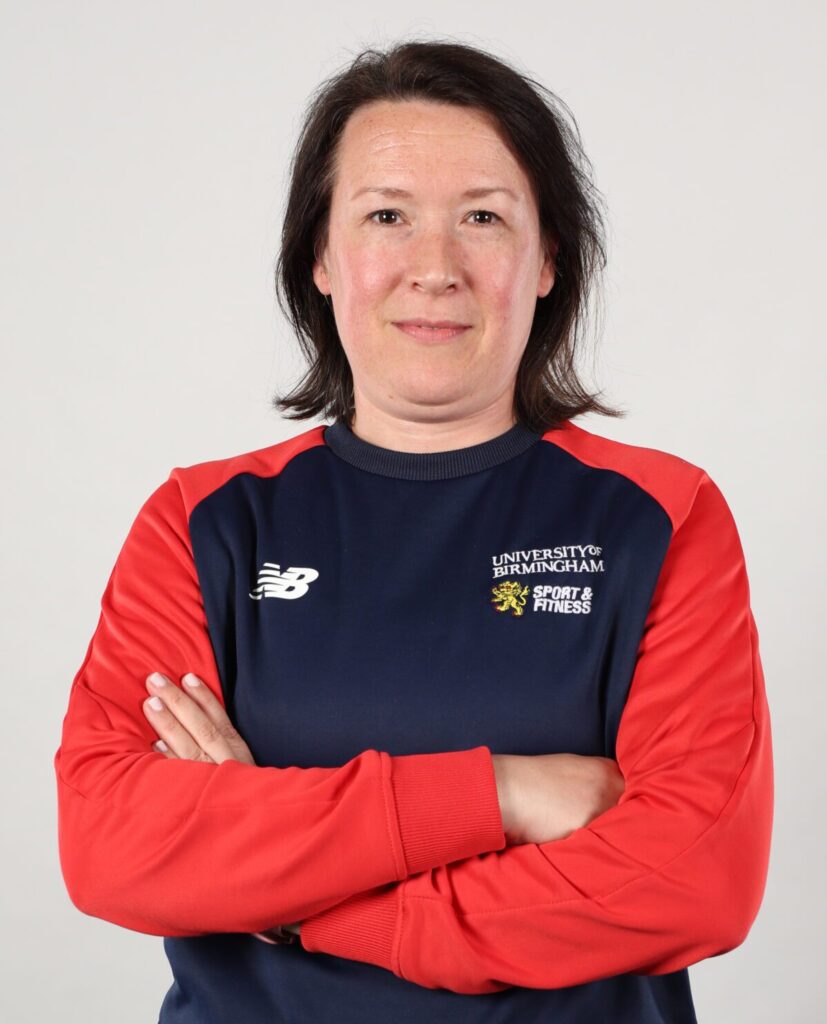Five Minutes With: Evie Wood
Third year Geology student and UoB Elite Sport Scholar Evie Wood is no stranger to the international hockey stage. A long-time member of the Great Britain Elite Development Programme (GB EDP) and having starred in the 2022 England squad that secured a historic bronze medal at the 2022 Junior World Cup, Evie has returned to the squad for this year’s FIH Hockey Women’s Junior World Cup, this time as Co-Captain. First year sport scholar Alice Atkinson (pictured with Evie below) also features in the squad.
We caught up with Evie before she travelled to Chile for the tournament – where England have qualified for the quarter-finals after topping their pool – to find out what it is about international hockey that she enjoys so much, how she prepared for the tournament before travelling and what she believes sets Birmingham apart from other universities.
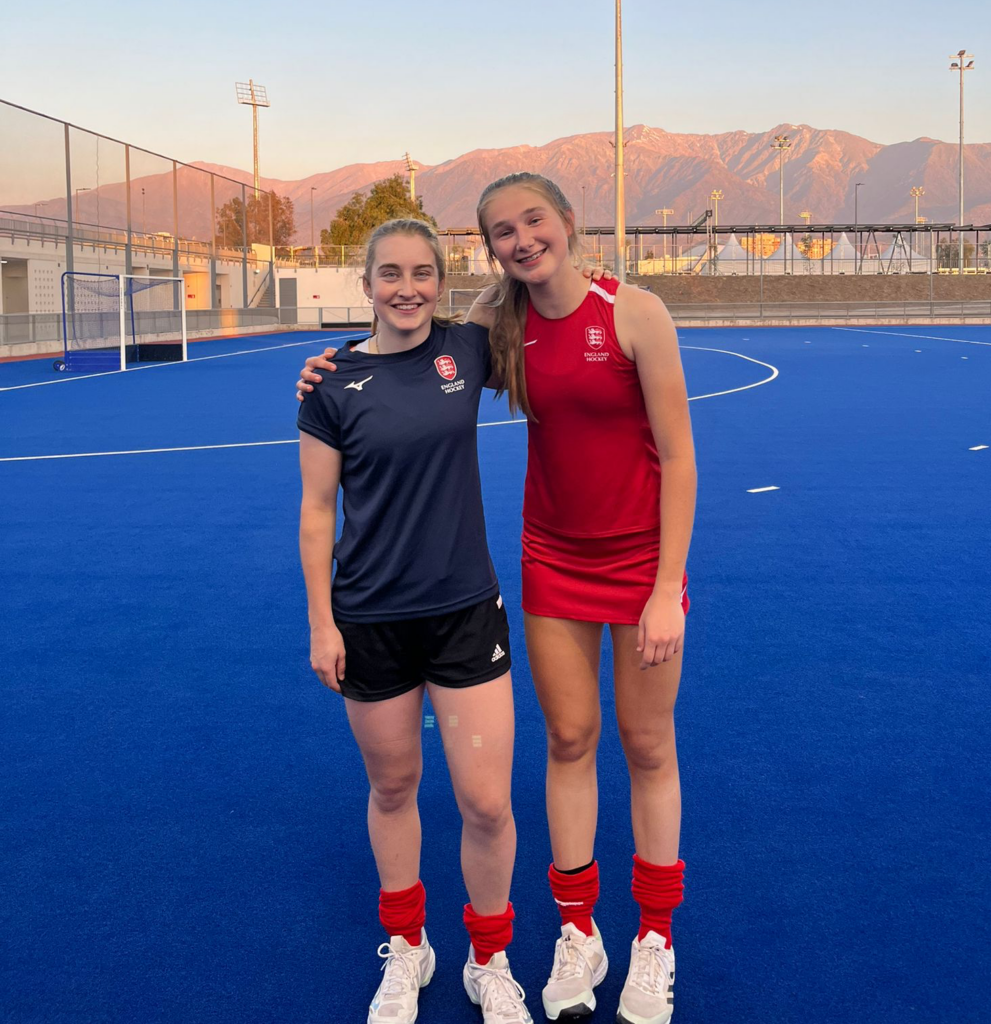
Q: Last year you were part of the history-making, bronze medal-winning England squad at the Junior World Cup. This year, you’ve been named as Co-Captain. What are you most excited about this year’s tournament?
Firstly, I’m really excited to play in Santiago. The venue looks amazing and I haven’t been to Chile before so looking forward to experiencing the atmosphere and culture there.
Secondly, in tournaments such as the Junior World Cup you come across teams from all continents. In our pool we play New Zealand, Japan and USA which are all teams we rarely get to play, so it’s an exciting challenge to compete against these different styles of hockey.
Q: What do you love most about playing international hockey?
I love both the performance aspect and the travel that comes with international hockey. Playing high level, pressured games is exciting, and to be able to play these games all around the world is what makes it different to your club games.
Q: How – if at all – has your training regime changed over the last couple of months, in preparation for travelling to Chile?
On pitch, we have been training weekly with the England U21 squad. In August, we also played in a Four Nations tournament in Germany where we competed against the German, Indian and Spanish U21 squads.
Since Chile will be much warmer than England in December, we have been prepping off pitch in the heat chamber (pictured below) and sauna at the University to get some heat acclimation in before we arrive.
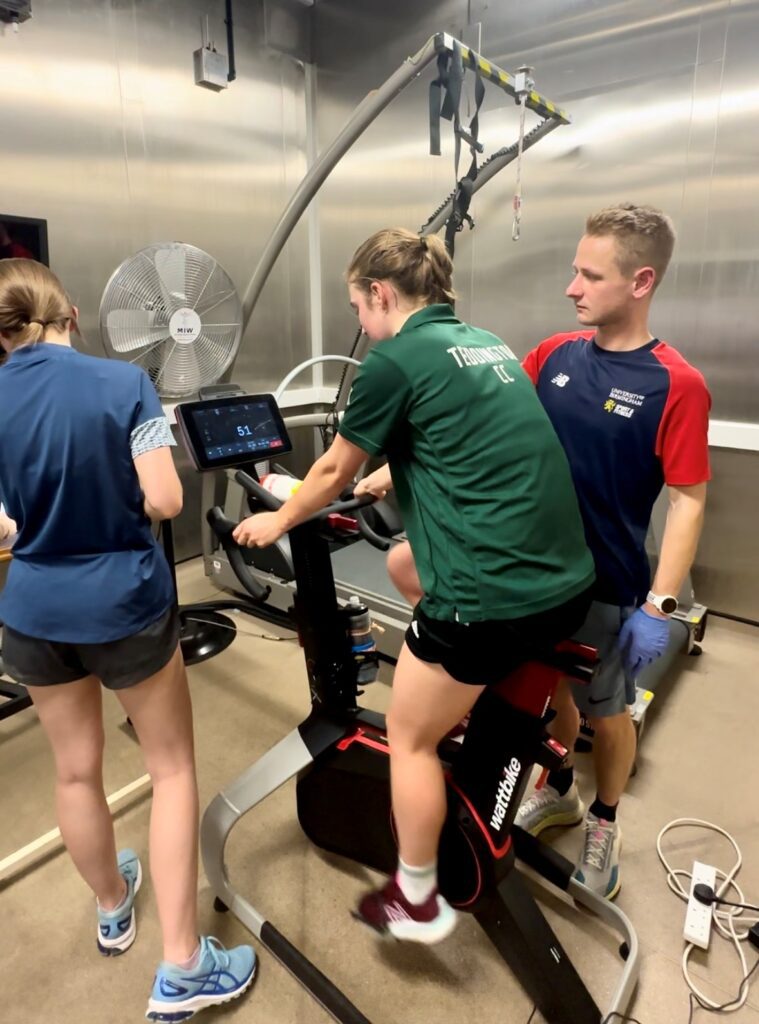
Q: How do you cope with balancing elite-level hockey and international competition, alongside your academic studies?
I’m currently in my third year at UoB studying Geology. I decided to split my third year (complete it over two years instead of one) which has given me more time to train and focus on the Junior World Cup, whilst also completing my degree alongside this. Over the last two years, my lecturers have been really accommodating of my hockey commitments and I have had regular meetings with both my academic tutors and the Scholarships Team at Birmingham to help me manage both work and hockey load.
Q: How has the EDCAP programme supported your development as an elite-level hockey player?
The range and the level of support we can access through the UoB EDCAP scholarship programme, I believe, is unmatched and has made a huge impact on my development as an athlete. Having strength and conditioning coaching three times a week, along with physiotherapy, nutrition and lifestyle support available helps me become a more well-rounded athlete both on and off the pitch.
Q: Why would you recommend UoB to aspiring hockey players?
The most important thing for me is the team culture and I feel that the whole hockey club at Birmingham creates an environment where everyone feels welcome. This alongside the amazing facilities and the high level of coaching is what I believe sets Birmingham apart from other universities.
Q: Looking ahead, what is next on the cards for you after the Junior World Cup has finished?
After the Junior World Cup I’ll no longer be eligible for the U21s, so I am looking forward to developing within the GB EDP environment and then senior squad trials at the end of next year.
What They Said…
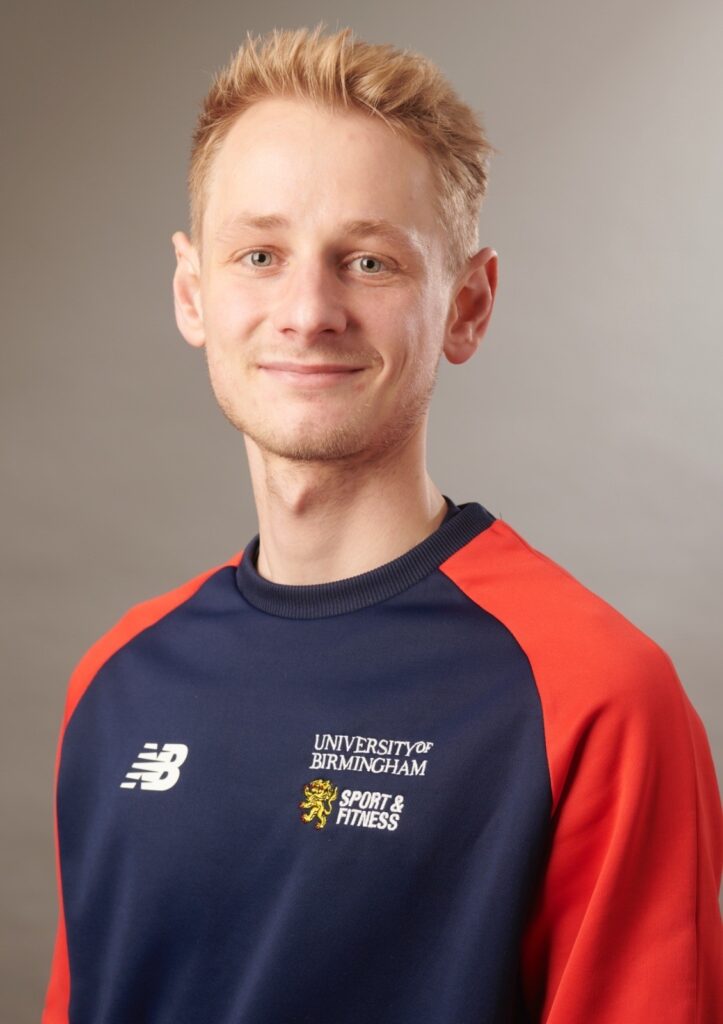
“As part of her preparations for the FIH Hockey Women’s Junior World Cup in Santiago (Chile), where temperatures regularly exceed 30 degrees Celsius, EDCAP scholar and Goalkeeper Evie Wood followed a heat acclimation protocol, drawn up by myself and fellow UoB Sport Physiologist Dan Lothian.
Evie completed weekly bike sessions in the University’s environmental “heat” chamber, supplemented with regular post-exercise sauna bathing as a practical alternative, allowing her to maintain her usual hockey-specific training alongside this.
Exposure to these environments drives a number of key physiological and thermoregulatory responses, resulting in a lower core temperature, heart rate and perception of effort, as well as an increased sweat rate and thermal comfort, to name but a few. All of this meant that Evie was well-equipped and ready to take on that Chilean heat!”
– Dave Sheldon, UoB Sport Physiology Lead (left)
